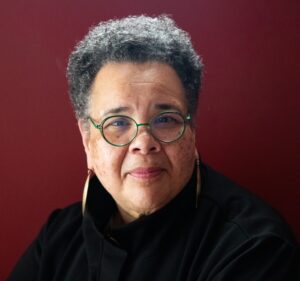
Emotional Labor in Teaching
If I have learned anything in this life of teaching, it is this: the emotional labor of teaching is genuine. Routinely, class sessions left me exhausted. After most sessions I would need to sit in silence for an hour to regain my energies or have a meal to replenish my body. The depletion was never from a lecture, but from the intensity of conversation with students. The emotional labor of teaching occurs due to the full engagement of body, mind, spirit, guts, wit, intuition, intellect, and humor, all summoned in the teaching encounter.
When we do our teaching work well, classroom conversation can be powerfully interactive—for students and for us. Teaching religion, in confessional or non-confessional institutions, can stir up cultural tensions, stretch personal beliefs, raise consciousness and reenforce ethical obligations. Classrooms where the pursuit of truth is passionate, enthusiastic and exciting can take an emotional toll on the teachers because of the emotional investment in the endeavor. Interactions with students are often fulfilling but never neutral. The intensity of the conversation when students are expressing curiosity, thinking deeply, connecting previously disconnected ideas, and experiencing new insights can tax our emotional reservoirs.
Emotional labor in the classroom is not a flaw, nor a side effect. Teachers who extend themselves, make themselves available, and open their hearts to students must realize that emotional presence—from delight to disappointment—is part of the work of teaching. Regardless of the season in one’s career, navigating identity, belief, and culture without falling into advocacy or detachment is hard. Vulnerability can be costly.
For those of us who must contend with the disrespect, disregard and indignity foisted upon us by students who judge us as inferior due to our gender, race, nationality, age, or physical ability, the emotional toll assumes the jagged dimensions of discrimination and injustice. Classroom spaces riddled with unfair bias can be debilitating.
To further complicate the challenge, students’ habit of coaxing teachers into boundary-blurring or insisting upon role overload can be aggravating. As an African American woman, students would treat me like women in their families or in their churches. Too often I was relegated to the status of deaconess, mother of the church, pastor’s wife, auntie or favorite cousin. Students, because of their lack of familiarity with an African American woman as a professor, and to appease their nervousness, would think of me as their counselor, lover, therapist, or friend. Many students would signal that I was like a familiar TV character—Florence Johnston, Oprah Winfrey, Aunt Viv or Clair Huxtable. I refused this status. I rejected the blurring and projection of these roles. I was their teacher. Being a teacher is a status, role, and an obligation worthy of pursuit and needs no appendages, additions, or attachments.
The emotional labor needs to be monitored, nurtured, and attended to. Over long periods of time, the labor can erode us. Burnout, disengagement, cynicism, ill-health, or depression must be avoided. Here are some strategies I have learned over the many years.
Practical Strategies
- Practice Grounding Rituals
- meditate and pray before class to center myself
- start class with breathing or meditation
- Plan the emotional rhythm of the semester
- plan for low intensity class sessions, e.g. a trip (on or off campus), showing a film, guest speaker, art activity, playing a game
- plan for time during the semester for rest and reflection
- Participate in peer support groups or professional support sessions
- routinely talk with colleagues or friends throughout the semester
- contract a therapist, spiritual director, cleric, or counselor
- Be aware of burnout symptoms
- know the symptoms of depression, burnout, fatigue and monitor
- journal concerning your emotional health as pertains to teaching
- Be mindful of your own humanness
- make sure you do not teach while over-tired or sleep deprived
- be well hydrated and not hungry in the classroom
- dress in clothes that make you feel confident and that are comfortable
We must find ways to stay emotionally connected while attending to our own needs. The emotional strain of teaching is part of the job but does not have to be a detriment of the job.
Reflection Questions
- What are the moments that renew you in teaching? How can you plan for those moments?
- How do you plan your sessions so there is a rhythm to the semester?
- What conversations or practices help you stay grounded?
- What habits, practices and behaviors help you sustain your truest self in the classroom?
- What toolkit can you build for your emotional health and wellbeing?
Leave a Reply